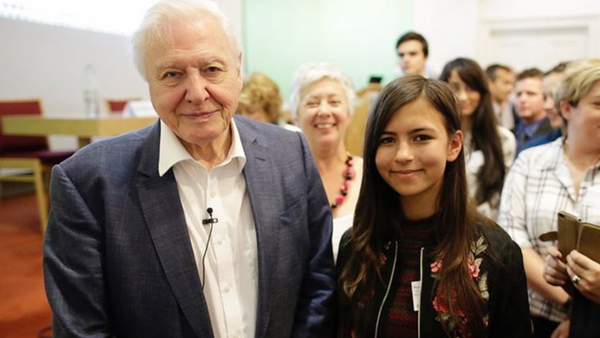The RSA is an optimistic Fellowship. The word "encouragement" is in our organisation's name. We hold to the idea of a new enlightenment, with the emphasis on the symbolism of "light" syllable. We instinctively gravitate to the assumption that, when it comes to change, people will more readily move towards a positive idea of the future than a negative one.
The RSA is an optimistic Fellowship. The word "encouragement" is in our organisation's name. We hold to the idea of a new enlightenment, with the emphasis on the symbolism of "light" syllable. We instinctively gravitate to the assumption that, when it comes to change, people will more readily move towards a positive idea of the future than a negative one.
[quote]
But what if we're wrong? A lot of great work on climate and behaviour has been done using this positive model of change. It's worth mentioning the achievements of a couple of Fellows. Tracey Todhunter was one of the founders of the successful Low Carbon Network, which allows communities to envisage the plusses of living in a low carbon society. Ed Gillespie's ground-breaking Futerra agency takes it as read that dour messages of doom are a turn-off - a strategy that appears to be endorsed by IPPR reports that show how discouraged people are by negative discussion of the environment.
But on the grand scale, we have also to admit that this approach isn't working either. Governments still don't feel able to make the changes that will lead to significant emissions reduction. In the UK, especially climate is slipping down the public agenda. COP15 achieved little. If, as the already outdated IPCC Fourth Assessment report showed, global emissions need to peak around 2020 and then start to decline if we are to stand a chance of missing the 2 degrees rise, we are, we must now admit, way, way, way off target. As climate experts at the Oxford conference 4degrees and beyond argued, we are now realistically looking towards trying to avoid or mitigate a four degree global temperature rise.
A couple of weeks ago I chaired the philosopher and Australian Greens candidate Clive Hamilton's talk here at the RSA, based on his recent book Requiem for a Species. In the discussion afterwards, towards the very end of the video posted below, Hamilton argues that it is hope, eternally teasing us with the idea of a technological or political fix, that is one of the major stumbling blocks to action. He argues the timescale is now too short for such solutions anyway. From a psychological viewpoint Hamilton says we need to go through a period of mourning for what we are about to lose so that we can move on to real action.
This is chimes with a recent essay by Rosemary Randall in the journal Ecopsychology. We are paralysed because pyschologically we can't face up to the scale of the loss we are looking at:
Do we need to go through an acceptance of loss in order to reorder our world in a positive way? Is such a "mourning" even possible? This weekend the writer Paul Kingsnorth and his associate Dougald Hine are running Uncivilisation: The Dark Mountain Festival in Llangollen. On the Sunday I'm chairing a discussion along these lines with Paul Kingnorth, the poet Melanie Challenger and the writer Gregory Norminton. What does culture that acknowledges this look actually look like?While loss features strongly in predictions about the long-term effects of climate change, writes Randall, it is not fashionable to suggest that loss is inevitably a consequence of mitigation. This is not a message that the public wants to hear, nor is it a message that politicians are enthusiastic to promote. It is possible, however, that beneath the veneer of much public indifference or cynicism, there is an underlying perception of threatened, personal losses, possibly from climate change itself but certainly from attempts at mitigation.
If this is the case then the consequence is that change will be forestalled. When loss remains unspoken, neither grieved nor worked through, then change and adjustment cannot follow.
Related articles
-
Mya-Rose Craig: Featured Fellow Q&A
Mya-Rose Craig
Mya-Rose Craig is a 20-year-old birdwatcher, environmentalist and activist, author and RSA Fellow. Read our conversation with her as part of our Featured Fellow Q&A series.

Be the first to write a comment
Comments
Please login to post a comment or reply
Don't have an account? Click here to register.